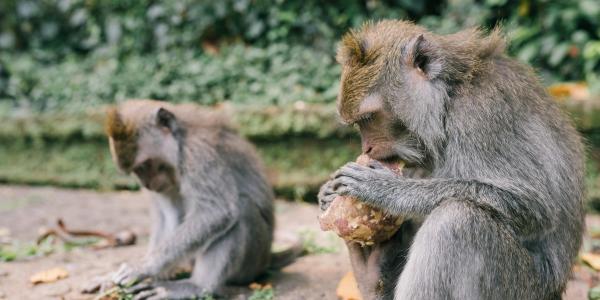Graduate student Jacqueline Garnett will study the link between diet and evolution in monkeys.
Jacqueline Garnett, a graduate student in the Department of Anthropology, won a $20,000 research grant from the Leakey Foundation to study diet-related adaptations of monkeys, research that could have implications for the evolution of other primates.

For her research, Garnett will travel to the Smithsonian Museum of Natural History in Washington, D.C., and the American Museum of Natural History in New York City to photograph the teeth and jaws of monkey specimens from Central and South America (including howler monkeys and woolly monkeys) as well as those from Africa and Asia (including macaques and red colobus monkeys).
Those two groups diverged around 40 million years ago, allowing for many evolutionary changes. Different species adopted different diets. Among the Central and South American monkeys, for instance, howler monkeys eat mostly leaves while woolly monkeys primarily live on fruit.
Using the photos as a reference, Garnett will create 3D models of the jaws and teeth of various species. Those models will make it possible to compare the evolutionary adaptations that resulted from the dietary changes. One theory, she said, is that some species are more adaptable and therefore less vulnerable to environmental changes than others.
Created in 1968 to support the work of pioneering anthropologist Louis Leakey, the Leakey Foundation funds research relevant to human origins. The foundation awards more than $1 million in grants every year, mostly to graduate students.
Header image credit: Yan Krukau / Pexels





